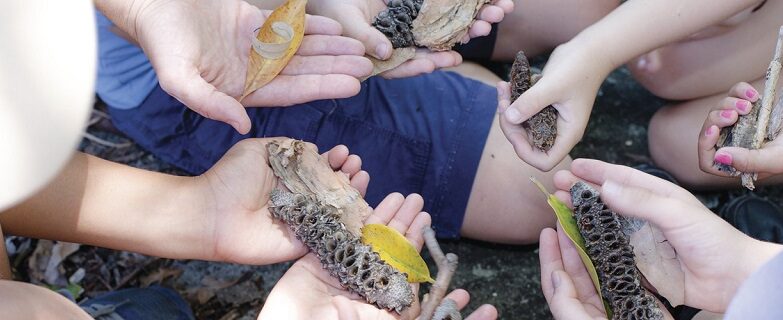Social science isn’t just about memorizing dates and historical figures. It’s about understanding the world around us – the systems, structures, and human interactions that shape our lives. While textbooks play a role, the most engaging learning often happens through interactive experiences. This article explores a variety of social science activities for all ages, designed to spark curiosity, foster critical thinking, and bring abstract concepts to life. Whether you’re a parent, educator, or simply someone interested in learning more about the world, this guide provides a treasure trove of ideas to make social science exploration exciting and accessible.
Building a Foundation: Activities for Young Learners (Ages 5-10)
- Community Explorers: Take your child on a walk around your neighborhood and discuss the different roles people play (shopkeeper, doctor, teacher). Talk about the importance of these roles in a functioning community.
- Family History Detective: Explore your family history together. Interview relatives, look at old photos, and create a family tree. This helps children understand the concept of time, family structures, and cultural traditions.
- Government Simulation: Set up a mock election in your household. Each member can design a campaign poster, debate their ideas, and hold a vote – simulating the democratic process.
- Map Adventures: Use maps to explore different countries and cultures. Discuss geographical features, languages spoken, and different ways of life.
- Role-Playing Games: Role-playing historical figures or characters in a fictional society allows children to explore social hierarchies, decision-making, and the consequences of actions.
Deepening Understanding: Activities for Tweens and Teens (Ages 11-18)
- Current Events Debate: Choose a current event and organize a debate at home. Assign different perspectives to participants, encouraging research and argumentation skills.
- Social Justice Project: Research a social justice issue you care about, such as poverty or environmental protection. Develop a presentation or plan a community service activity to raise awareness. This fosters social responsibility and critical thinking.
- Mock Trial: Set up a mock trial in your classroom or at home. Assign roles (judge, jury, lawyers, witnesses), and recreate a historical trial or fictional scenario. This strengthens research skills, critical thinking, and public speaking.
- Historical Simulation: Immerse yourselves in a particular historical period by recreating daily life. Research clothing, food, customs, and social norms of the time. This brings history to life and fosters empathy for people of the past.
- Global Collaboration Project: Connect with a classroom in another country via online platforms. Discuss cultural differences, and similarities, and collaborate on a project like a virtual exchange program.
Lifelong Learning: Activities for Adults
- Book Clubs with a Social Science Focus: Choose a book that explores a historical event, a social issue, or an economic theory. Discuss the book in a group setting, encouraging diverse perspectives and critical analysis.
- Documentary Screenings and Discussions: Organize movie nights focused on social science documentaries. After watching, have a discussion about the issues presented and their historical context.
- Volunteer Activities: Volunteer for a local organization working on social issues you care about. This is a practical way to learn about social challenges and contribute to positive change in your community.
- Travel with a Purpose: Plan a trip that allows you to immerse yourself in a different culture. Research the history, social structures, and political landscape of your destination beforehand.
- Citizen Science Projects: Participate in online citizen science projects related to social science topics. This could involve analyzing historical data sets, contributing to community surveys, or helping researchers collect information.
Additional Tips for Engaging Social Science Activities
- Make it Relevant: Connect social science concepts to real-life experiences and current events to spark interest and relevance.
- Encourage Inquiry: Foster a culture of questioning and critical thinking. Ask open-ended questions and encourage participants to explore different perspectives.
- Incorporate Technology: Utilize online resources, educational apps, and virtual reality experiences to further enhance learning.
- Go Hands-On: Activities like simulations, role-playing games, and historical reenactments provide a more immersive learning experience.
- Make it Fun!: Learning should be enjoyable! Incorporate games, simulations, and creative activities to make social science exploration engaging for all ages.

Benefits of Engaging Social Science Activities
By going beyond textbooks and engaging in interactive social science activities, we can achieve a deeper understanding of the world around us. These activities can:
- Boost Critical Thinking Skills: Analyzing current events, engaging in debates, and researching historical controversies equip participants with the critical thinking skills necessary to navigate a complex world.
- Develop Problem-Solving Skills: Through simulations, role-playing games, and discussions about social justice issues, participants learn to analyze problems, consider different perspectives, and develop potential solutions.
- Fosters Empathy and Cultural Understanding: Exploring different cultures, historical periods, and social systems allows individuals to see the world through different lenses and develop empathy for others.
- Increases Civic Engagement: Understanding how societies function and the challenges they face encourages individuals to participate actively in their communities and contribute to positive change.
- Enhances Communication Skills: Group discussions, debates, and presentations hone communication and collaboration skills, essential for success in all aspects of life.
Related: Best Examples of Kid Logic You Have Ever Seen
Conclusion: A World of Learning Beyond Textbooks
Social science is a dynamic and ever-evolving field with profound implications for our lives. By engaging in interactive activities beyond traditional textbooks, we can transform learning from rote memorization to a stimulating exploration of the world around us. Whether you’re a parent, educator, or simply someone curious about the human experience, these activities provide a valuable springboard for lifelong social science exploration. So, embrace the power of interactive learning, unleash your curiosity, and embark on a journey of discovery through the fascinating world of social science.








